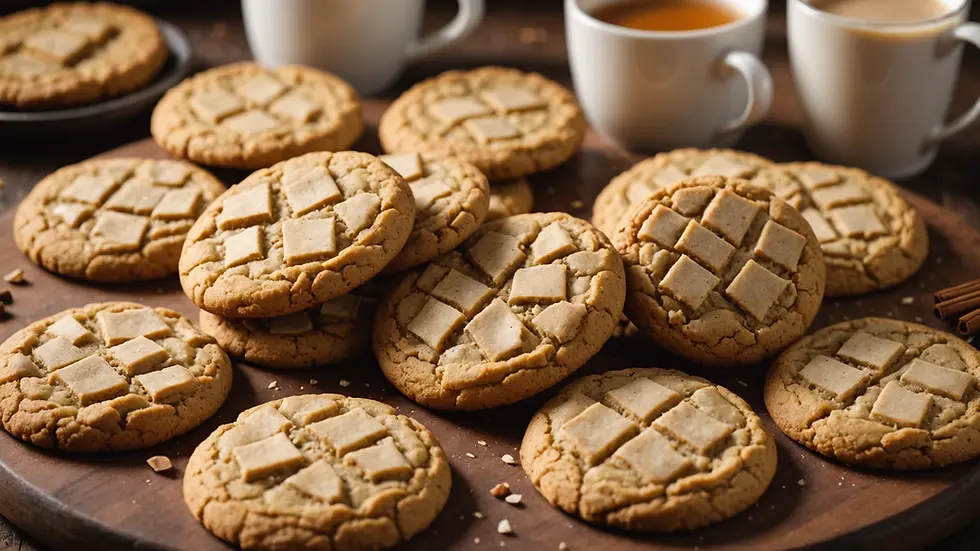Exploring the Harmonious Union: Black Tea and Cuisine for an Unparalleled Experience
- slyflameltd
- Feb 4
- 3 min read
Black tea, known for its deep flavor and impressive health benefits, is a beverage that beautifully complements a variety of foods. This post will highlight the delightful intersections of black tea and cuisine, illustrating how to enhance the dining experience through thoughtful pairings.
The Essence of Black Tea
Black tea derives from the leaves of the Camellia sinensis plant and is both versatile and rich in flavor. Its taste can be described as malty or fruity because the leaves undergo full oxidation, which involves careful steps like withering, rolling, fermenting, and drying. Flavor profiles can differ greatly between varieties. For instance, Assam provides a brisk and bold flavor, while Darjeeling offers a more delicate and nuanced experience.
As more individuals appreciate its flavor and health properties, black tea has gained notoriety. Notably, studies suggest that drinking black tea may reduce the risk of heart disease by up to 10%, improve mental alertness, and support a healthy digestive system. The combination of rich taste and positive health impacts makes black tea an ideal partner for many culinary experiences.
Characteristics of Black Tea
The distinct flavor profiles of black tea can change significantly with the type of tea and brewing methods. Key characteristics include:
Aromatic Complexity: Black tea can exhibit a range of notes, from honeyed sweetness to earthy undertones. This complexity makes it intriguing and enjoyable.
Bitter Undertones: Tannins in black tea add a pleasant astringency. This quality refreshes the palate, making it well-suited for pairing with richer, heavier foods.
Body and Strength: The full-bodied nature of black tea complements robust flavors, allowing it to stand up to assertive dishes without getting lost in the mix.
Food Pairings with Black Tea
Pairing black tea with food involves balancing flavors to enhance the overall dining experience. Here are some standout combinations to try at your next meal.
1. Savory Dishes
Richly Spiced Curry with Assam Tea
Assam tea, renowned for its bold, malty notes, pairs well with richly spiced curries. The tea's strong flavor complements spices like cumin and coriander typically found in Indian dishes. A cup of Assam effortlessly cuts through the richness of coconut milk used in curries, leaving a refreshing finish.

Barbecue Ribs with Lapsang Souchong
Lapsang Souchong, noted for its distinctive smokiness, enhances the experience of barbecued ribs. The boldness of the tea echoes the charred flavors of the ribs, creating a layered taste that excites the palate.

2. Sweet Treats
Chocolate Cake with Darjeeling Tea
Often dubbed the "Champagne of teas," Darjeeling has floral and fruity notes that contrast beautifully with the rich texture of chocolate cake. A slice of moist chocolate cake paired with a cup of Darjeeling tea finds a delightful balance, making for a unique tasting experience.
Chai Spiced Cookies with Masala Chai
For those fond of baking, serving chai spiced cookies with a warm cup of Masala Chai offers a wonderful pairing. The spices in the cookies align perfectly with the aromatic blend of Masala Chai, providing comfort in every bite.

3. Cheese and Charcuterie
Aged Cheddar with Earl Grey
The robust flavor of Earl Grey melds seamlessly with the sharpness of aged cheddar. The pairing creates a depth of flavor that enhances a sophisticated cheese platter or an afternoon tea setting.
Blue Cheese with Russian Caravan Tea
Blue cheese, known for its bold and pungent flavor, beautifully complements the rich, smoky tones of Russian Caravan tea. The creaminess of the cheese holds its ground against the tea's complexity, making for a memorable experience that lingers on the palate.
Brewing the Perfect Cup of Black Tea
To maximize the flavor of black tea, precise brewing techniques are necessary. Here are some tips:
Choose Quality Leaves: Opt for loose leaf tea instead of teabags. Quality leaves yield a richer flavor.
Water Temperature: Brew black tea with water heated to about 200°F (93°C) to extract maximum flavor without bitterness.
Brewing Time: Steep the tea for 3-5 minutes based on your preferred strength. Avoid oversteeping, as it can produce bitterness.
Experimentation: Don't hesitate to try different types of black tea, adjusting temperature and steep time until you find your favorite.
Final Thoughts
The combination of black tea and food creates a delightful partnership that enhances the overall dining experience. By knowing the unique characteristics of various black teas and their ideal food pairings, you can embark on a culinary journey filled with flavor.
Whether you're enjoying a refined afternoon tea or a hearty meal, integrating black tea can elevate an ordinary dish to something exceptional. So, take the time to explore the diverse world of black tea and discover its perfect culinary companions. Your taste buds will be grateful!








Comments